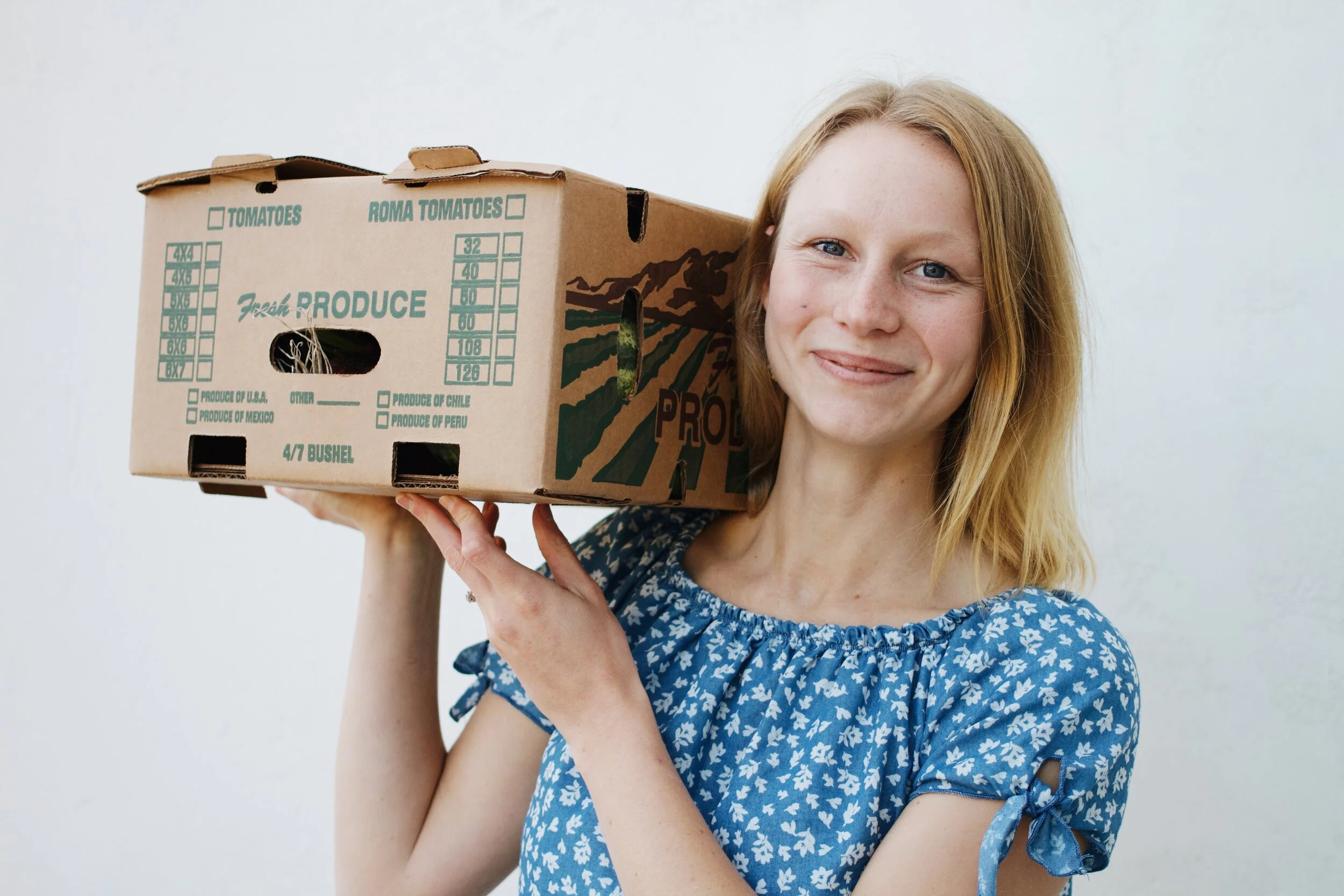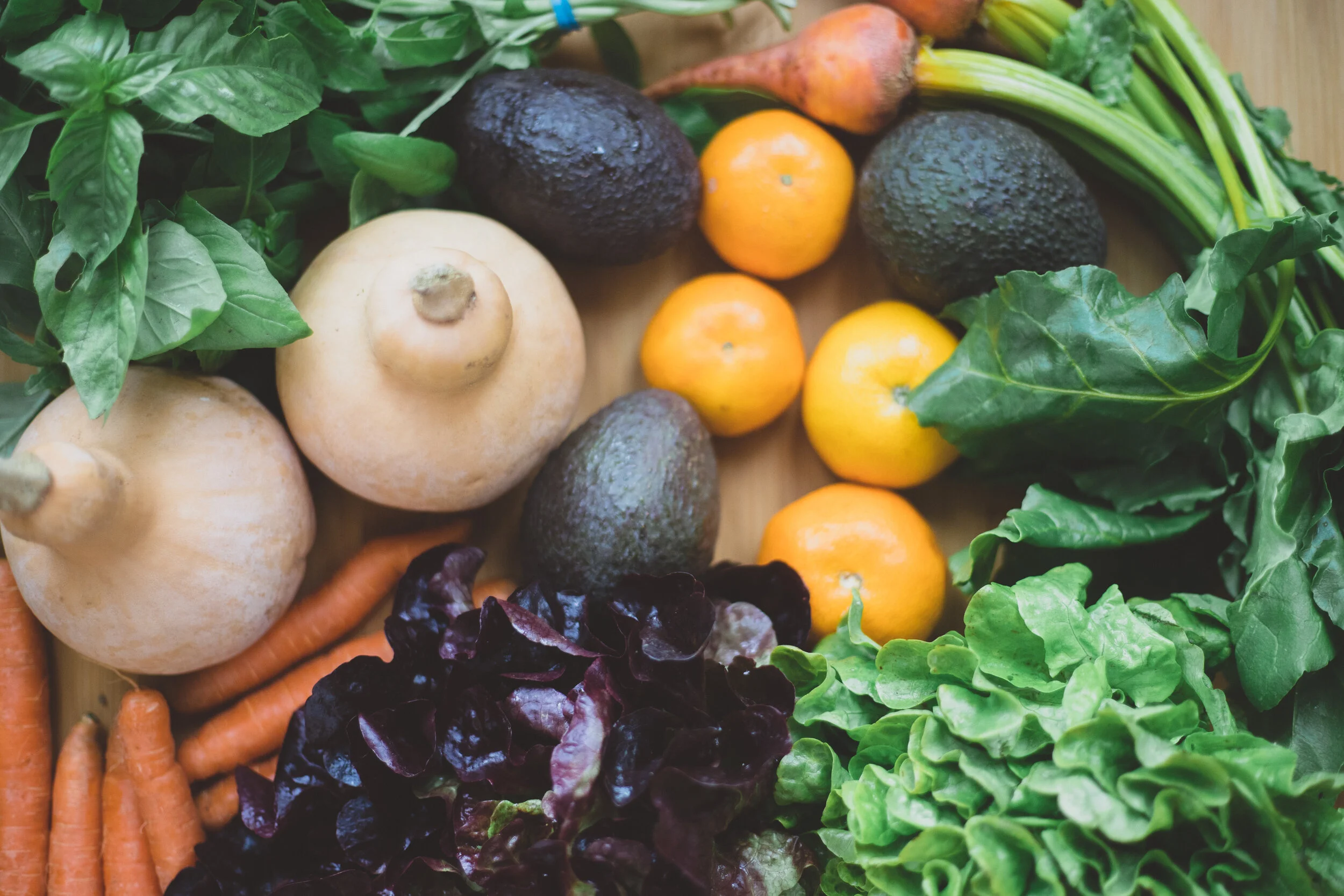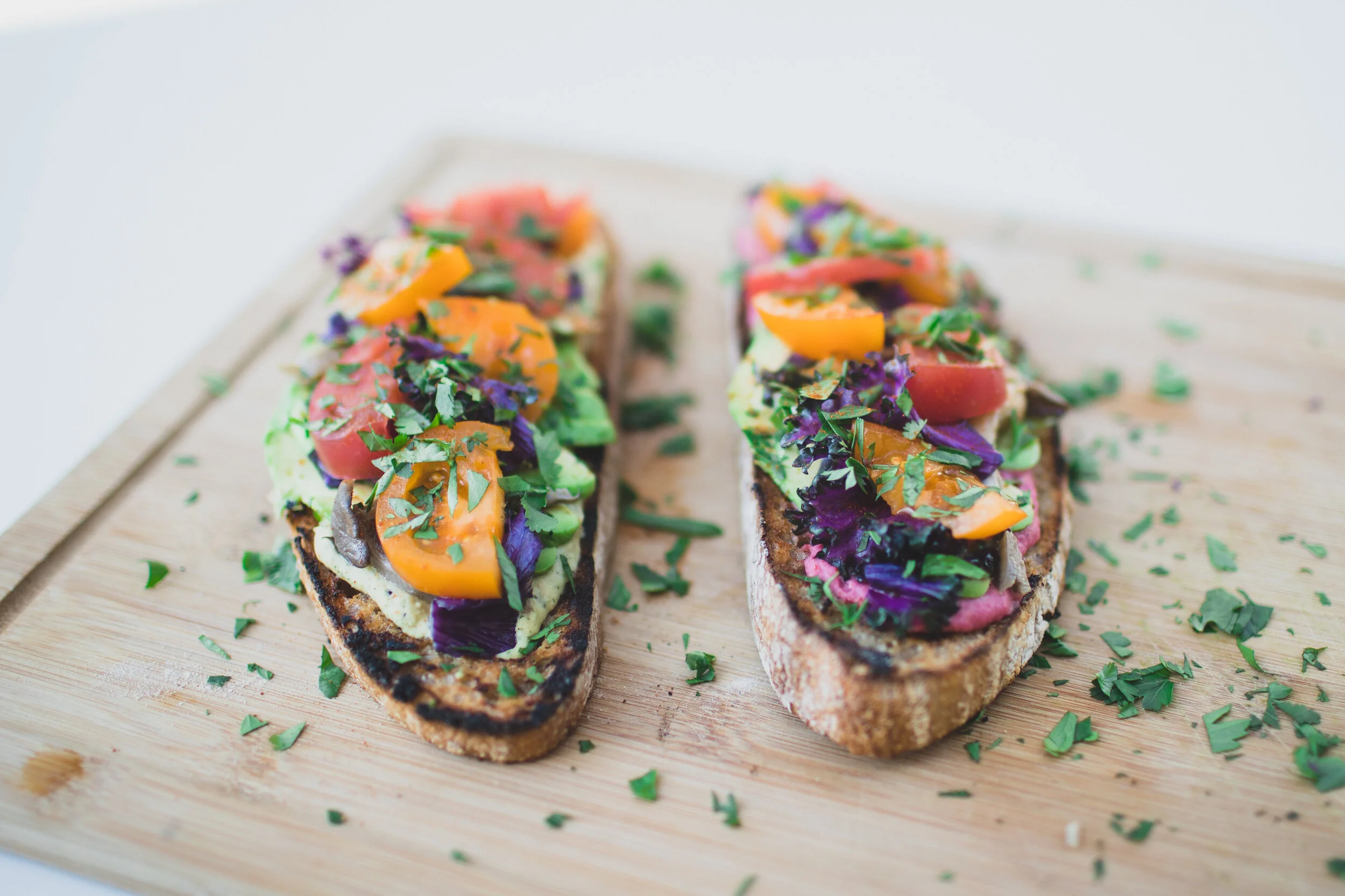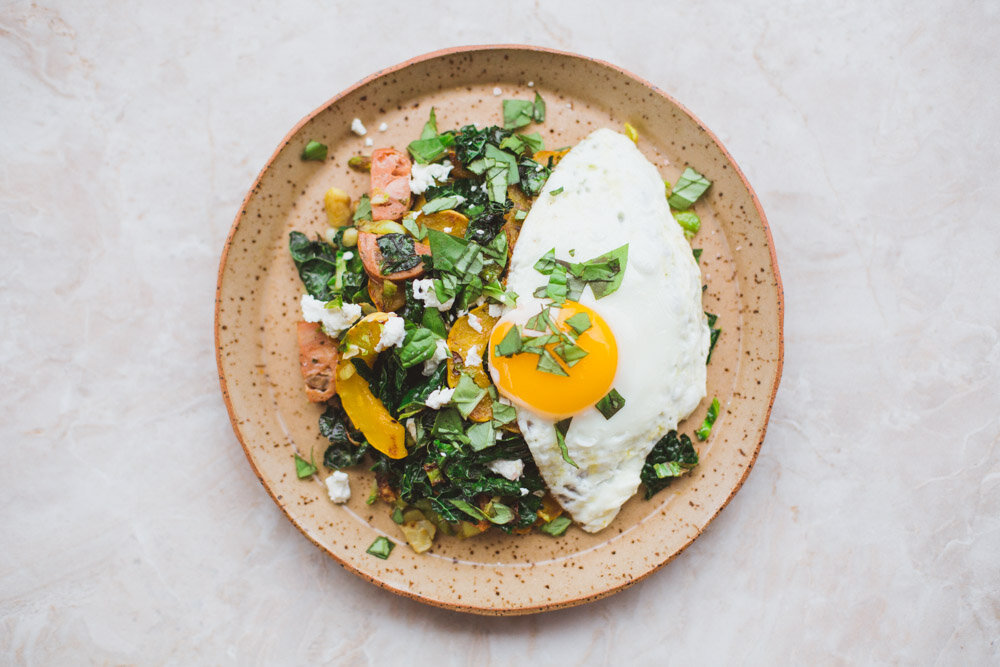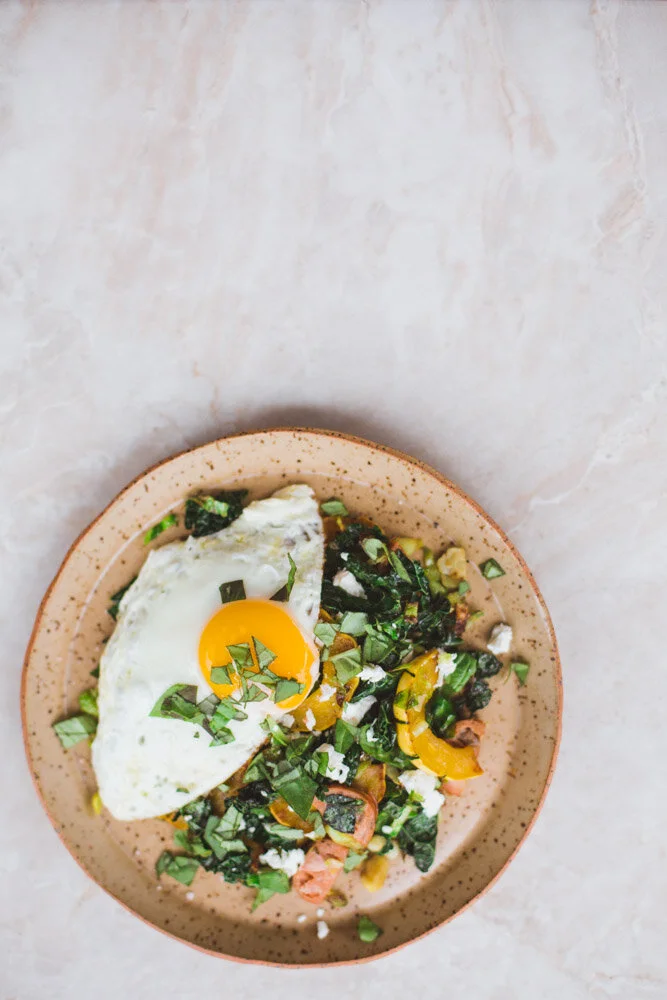Buying Local Produce - Is It Really That Important?
/If you follow me on social media, you’ve probably seen me singing the farmer’s market praises, or going off about how much I love my weekly farm box. Honestly, I didn’t used to feel this way. A couple years ago I was shopping at TJ’s for almost all of my food, including my produce (I still love Trader Joe’s, and they provide a lot of great food and great jobs!). It was close to home, cheap, quite a few organic options, and convenient. What more could I want?
Well, let me paint a picture for you. Let’s say you pick up a few apples at a grocery store in the middle of Spring. Those apples were probably picked before they were fully ripe, have been sitting in some sort of cooler for 6 months, were taken out of the cooler a week before you saw them, traveled over 1,000 miles in a truck, and are now sitting in front of you in the grocery store. You really have no way of knowing where your apples were grown, when they were picked, how fresh they are, and how they got to be right in front of you. This applies to more than just apples.
Let me paint another picture. You’re driving home from work on Tuesday, and you stop to pick up a box on your way home. This box is full of 10 different kinds of vegetables and fruits, all grown within your area. You know which farms the produce comes from, that it’s all organic, picked when its ripe, in season, and extremely fresh. You know that you’re supporting a local farmer in your area that works tirelessly to provide their community with fresh produce. That in itself is a pretty powerful thing.
Maybe you’re starting to understand why I’m passionate about buying from local farmers, but let me explain a few more reasons why:
Local and seasonal foods generally have more complex flavors and higher nutrition content. Local produce is picked at peak ripeness, which allows the nutrients and flavor to develop more fully. Once a fruit or vegetable is picked, it slowly starts to lose nutritional value. When you buy locally, not very much time has passed between harvest and your table, meaning more of the nutrients are still in tact.
When you buy locally, you are reducing the amount of energy it takes to store and transport your food. Imagine how much energy is used to power giant refrigerators and freezers and semi trucks.
Buying from local, organic farms also means you aren’t consuming food with pesticides and herbicides. You are supporting your own health and the health of our planet.
When you buy from local farmers and grocers, your money remains within your local economy. You are supporting the livelihood of people in your own community, and helping your community’s economy thrive.
You will discover so many fruits and vegetables you never knew existed.
So many people in our country don’t have access to fresh produce. If you have the resources and geographical location to do this, then hop on this train! I would encourage you to do your part to contribute to a more sustainable world and a stronger community.
Supporting local farms is supporting your community, the environment, your own health, and preserves natural resources
LOCAL HARVEST is an AMAZING resource. At the top of the website you can search for farmer’s markets, co-ops, and CSA boxes in your area! A lot of areas don’t provide CSA boxes in the winter, but there’s usually a co-op or some other grocery store where you can get local produce.
Three things to look up in your area in order to find local and seasonal produce:
Co-ops
Farmer’s Markets
CSA boxes
Here’s a list of CSA boxes in a few areas that I know people that read my blog are from!
Seattle, WA:
Olympia, WA:
San Francisco, CA
Los Angeles, CA
Santa Barbara, CA
Portland, OR
Denver, CO
Kansas City, MO
Portland, ME

